Introduction
Getting to Know the Caffeine in Chai Tea Latte
Let’s talk caffeine. While many coffee fans might overlook chai tea lattes, this drink is a tasty contender. With its cozy mix of spices and creamy goodness, chai tea lattes pack quite the caffeine punch. Most of the caffeine comes from black tea leaves, and a regular 12-ounce chai latte usually has about 70.5 milligrams of caffeine. If you want an extra kick, try a “dirty chai” with a shot of espresso; that brings the total to around 135 milligrams, making it both a delicious treat and a solid energy booster.
Why Everyone Loves Chai Tea Lattes
Over the last few years, chai tea lattes have become super popular in coffee shops everywhere. This creamy drink serves as a great alternative to regular coffee, blending rich spices like cardamom and cinnamon with smooth steamed milk.
So why is it getting all this love? Here are some main reasons:
- Delicious Flavor: The mix of spices and sweetness makes it a hit with a lot of people.
- Health Perks: Thanks to antioxidants and anti-inflammatory properties from the spices, chai is often seen as a healthier drink.
- Flexibility: You can tweak your chai latte with non-dairy milk, sweeteners, or added spices to meet your taste.
As chai tea lattes continue to pop up everywhere, knowing about their caffeine content is key for making smart choices.
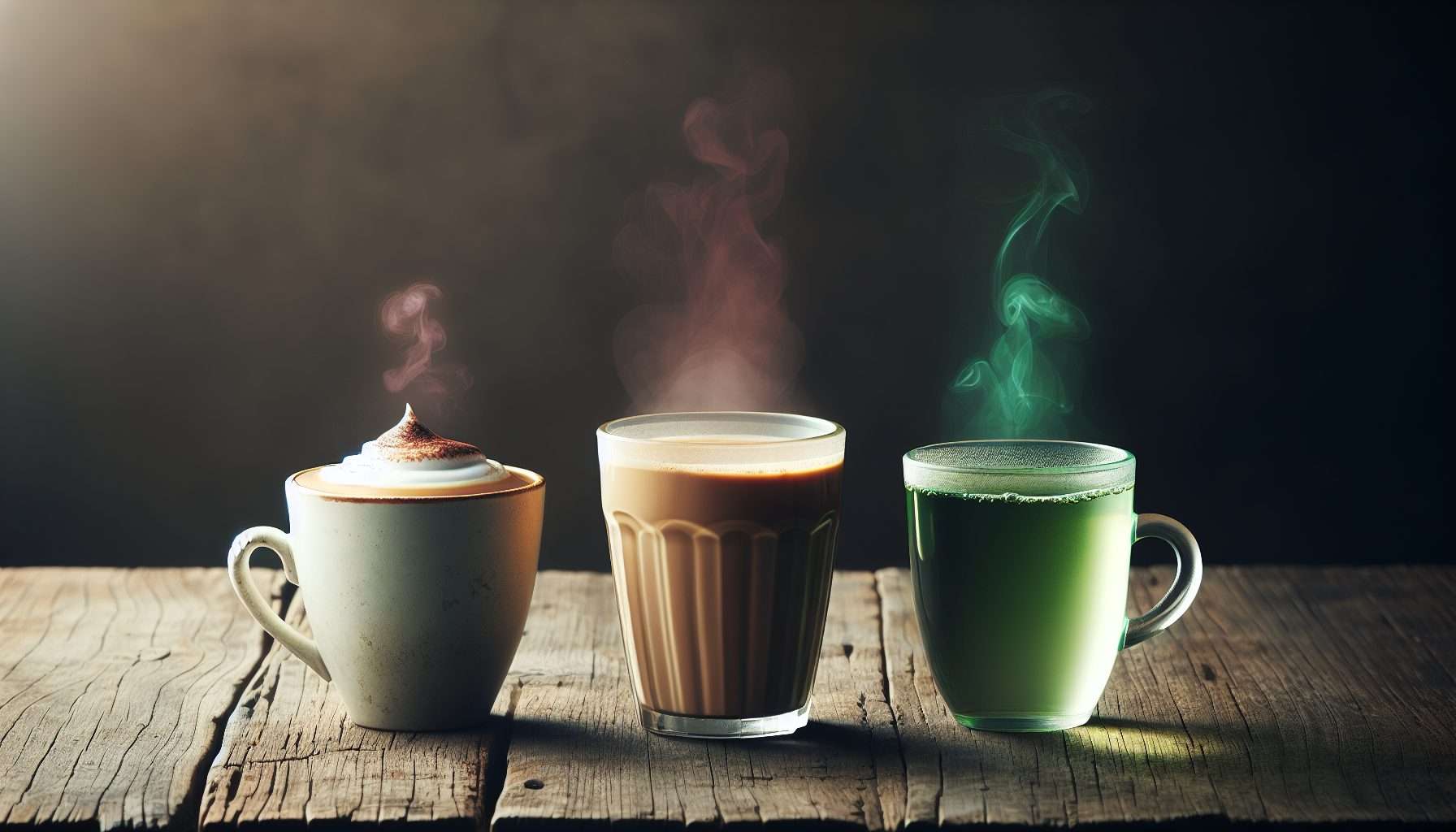
Caffeine in Chai Tea Lattes
Chai vs. Coffee Caffeine Levels
When you look at chai tea lattes and coffee, it’s important to know how their caffeine stacks up. On average, an 8-ounce chai tea latte has around 25-55 milligrams of caffeine, mostly from black tea, while a standard 8-ounce cup of brewed coffee can hit you with 95-165 milligrams.
This means chai gives you a gentler boost, so you can enjoy the energy without the jitters some folks get from coffee. If you’re after a smoother coffee alternative, chai tea latte is a great pick.
Here’s a simple comparison:
- Chai Tea Latte: ~25-55 mg of caffeine (8 oz)
- Brewed Coffee: ~95-165 mg of caffeine (8 oz)
Thanks to their lower caffeine levels, you can enjoy chai tea lattes throughout the day without feeling over-caffeinated.
What Affects Caffeine Levels
Several things can affect how much caffeine you get in your chai tea latte:
- Type of Black Tea: Different types of black tea change the caffeine amount. For example, Assam usually has more caffeine than Darjeeling.
- Brewing Time and Temperature: Steeping longer and using hotter water pulls more caffeine from the tea. The longer the tea sits, the more caffeine you get.
- Ingredient Proportions: If you’re making chai at home, the amount of tea you use will affect how much caffeine is in your drink.
Knowing these factors lets chai lovers create their ideal drink based on how much caffeine they want. Whether you want a cozy cup or a stronger brew, customizing your chai tea latte has never been easier!
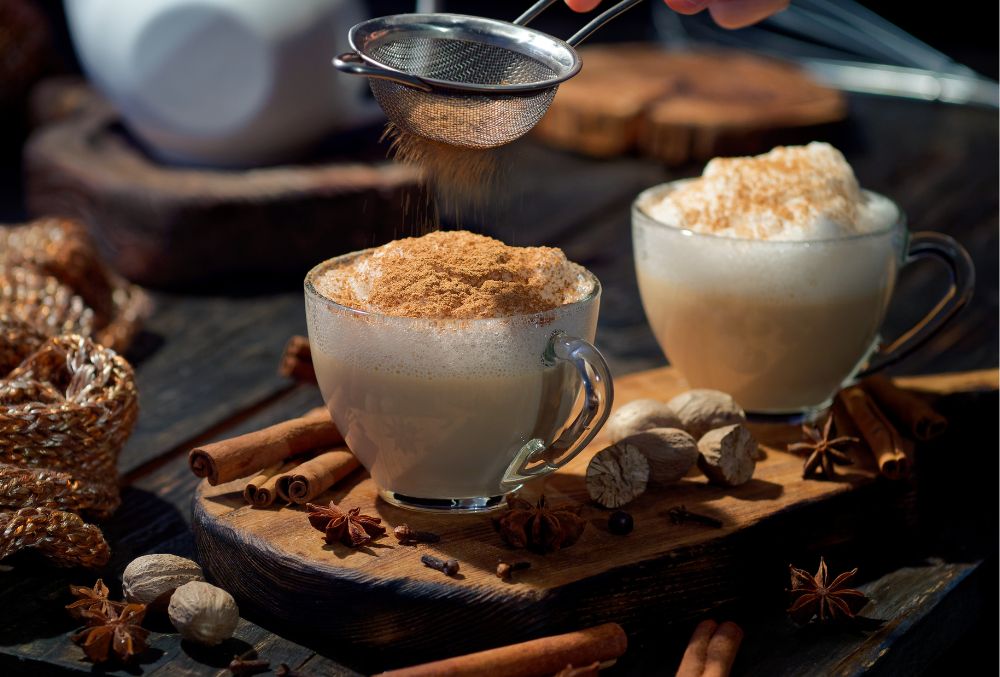
Breaking Down What’s in Your Chai Tea Latte
Ingredients Overview
A chai tea latte is a yummy mix that comes together from tea, spices, and milk. This aromatic drink offers a comforting experience that’s hard to beat. Here’s a closer look at what goes into it:
- Black Tea: This is the star of the show. It gives depth and caffeine, with Assam and Darjeeling being popular picks.
- Spices: Classic spices like cinnamon, cardamom, ginger, and cloves not only make it tasty but also add warmth and health perks.
- Milk: Freshly steamed milk brings a creaminess that balances the bold flavors of tea and spices.
- Sweeteners: Honey or sugar can be added for a touch of sweetness, making it your own.
These ingredients together create an inviting drink that can lift your spirits and warm your soul.
Caffeine Levels Based on Ingredients
The caffeine content in chai tea lattes can change a lot based on what ingredients you choose and how you prepare it. For instance:
- Type of Black Tea: Some types, like Assam, usually have more caffeine, so that affects how much you get in your cup.
- Tea-to-Milk Ratio: If you use more tea compared to milk, you’ll naturally have a stronger caffeine kick.
- Brewing Time: The longer you steep the tea, the more caffeine you’ll extract, while a shorter brew gives you a milder flavor and less caffeine.
With all these options, you can easily adjust your chai tea latte to suit your taste and caffeine preference, making each cup a personalized experience!
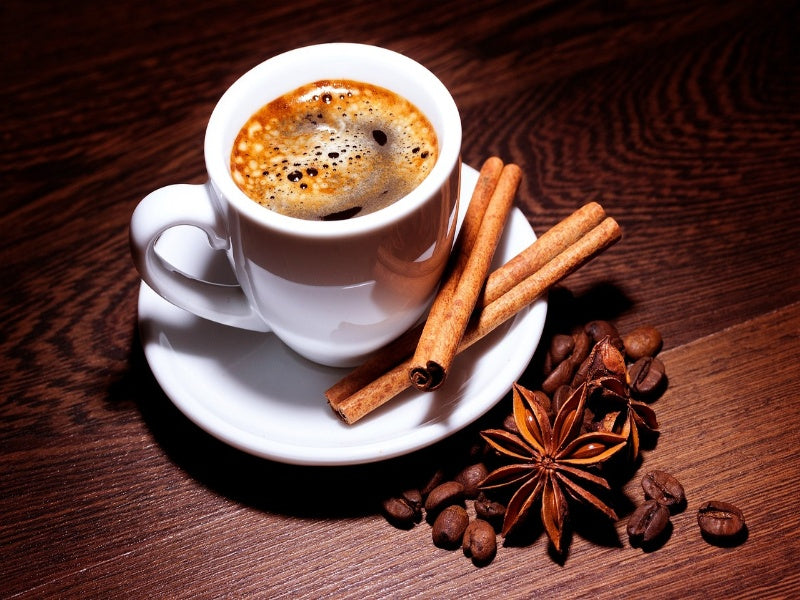
The Effects of Brewing Your Chai
How Steeping Time Affects Caffeine
When you brew a chai tea latte, how long you steep it really matters for its caffeine levels. The longer you steep it, the more caffeine you extract. Think about making chai—if you don’t let the spices and tea leaves simmer long enough, you might miss out on that special kick.
For example:
- Short Steeping (1-2 minutes): Less caffeine, resulting in a milder taste.
- Medium Steeping (3-5 minutes): A good balance that gives you both moderate caffeine and robust flavor.
- Long Steeping (6+ minutes): More caffeine and stronger flavors, but be careful; too long can make it bitter.
No matter if you like it light or strong, tweaking your steeping time lets you create the perfect cup.
Temperature and Caffeine Extraction
The temperature of your water also affects how much caffeine comes out when brewing. Hotter water usually speeds up the extraction, letting more caffeine from the tea leaves get into your drink.
Here’s how temperature affects your chai:
- Low Temperature (below 175°F): Slower extraction leads to a gentler drink with less caffeine.
- Optimal Temperature (175°F – 212°F): Best for pulling out full-bodied caffeine and flavor, resulting in a satisfying brew.
- High Temperature (above 212°F): Risk of over-extraction that could make your drink bitter with a stronger caffeine kick.
Knowing these factors can help chai fans customize their drinks to get the right balance of flavor and energy!
Health Considerations for Consumers
Daily Caffeine Guidelines
When you’re enjoying your favorite chai tea latte, it’s good to keep track of your caffeine. Health experts usually suggest that adults stick to about 400 milligrams of caffeine a day. That’s roughly four 8-ounce cups of brewed coffee or about ten chai lattes depending on how much caffeine they have.
- Moderation is Key: Staying within this recommended limit helps prevent unwanted side effects like anxiety, sleeplessness, or jitteriness.
If you’re a chai latte lover, it’s also important to know how much caffeine you can handle since people have different reactions to it.
Health Benefits and Risks
Chai tea lattes not only taste great but also come with a few health perks thanks to their unique ingredients.
Benefits include:
- Antioxidants: The black tea in chai is loaded with polyphenols, which can help protect against oxidative stress.
- Anti-inflammation: Spices like ginger and cinnamon can help reduce inflammation and may aid digestion.
That said, it’s also wise to consider potential downsides, especially for folks who are sensitive to caffeine or have issues like anxiety or heart conditions. Too much caffeine might lead to:
- Jitters or raised heart rate
- Sleep disruptions
Finding the right balance while enjoying chai makes sure that it stays a tasty and healthy part of your routine!
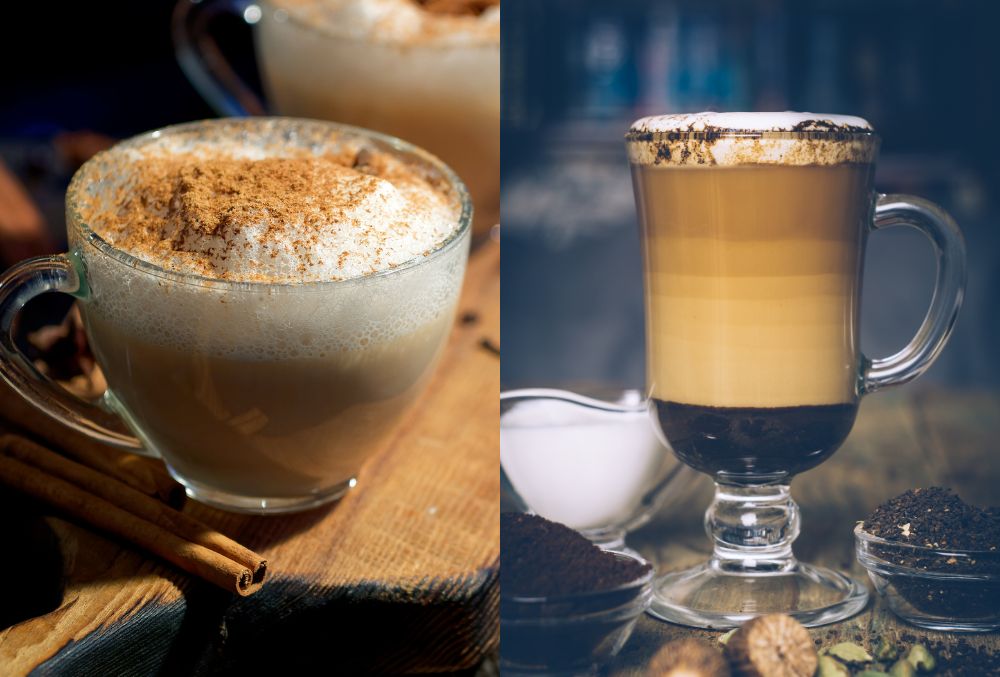
Popular Brands and Their Caffeine Levels
A Look at Different Chai Tea Latte Brands
When you’re enjoying a chai tea latte, different brands can really change the experience, especially regarding caffeine levels. Whether you’re at your favorite coffee spot or using a pre-packaged blend at home, knowing the caffeine content can help you make better choices.
Let’s check out a few well-known brands:
- Starbucks: Their chai tea latte is a go-to for many, with a spicy kick that includes about 95 milligrams of caffeine in a 12-ounce serving. Perfect for when you need an extra boost!
- Cafe Escapes: Offering a milder choice, this brand gives you around 35 milligrams of caffeine per serving. Great for those who want a light caffeine lift without feeling buzzed.
- Cafe Express: With around 65 milligrams of caffeine, this one strikes a nice balance for those who want something satisfying without being overwhelming.
Caffeine Ranking of Popular Brands
Here’s how these popular brands stack up in terms of caffeine:
- Starbucks: 95 mg (12 oz)
- Cafe Express: 65 mg (per serving)
- Cafe Escapes: 35 mg (per serving)
Knowing these details lets chai latte lovers pick their ideal drink based on their caffeine needs and flavors!
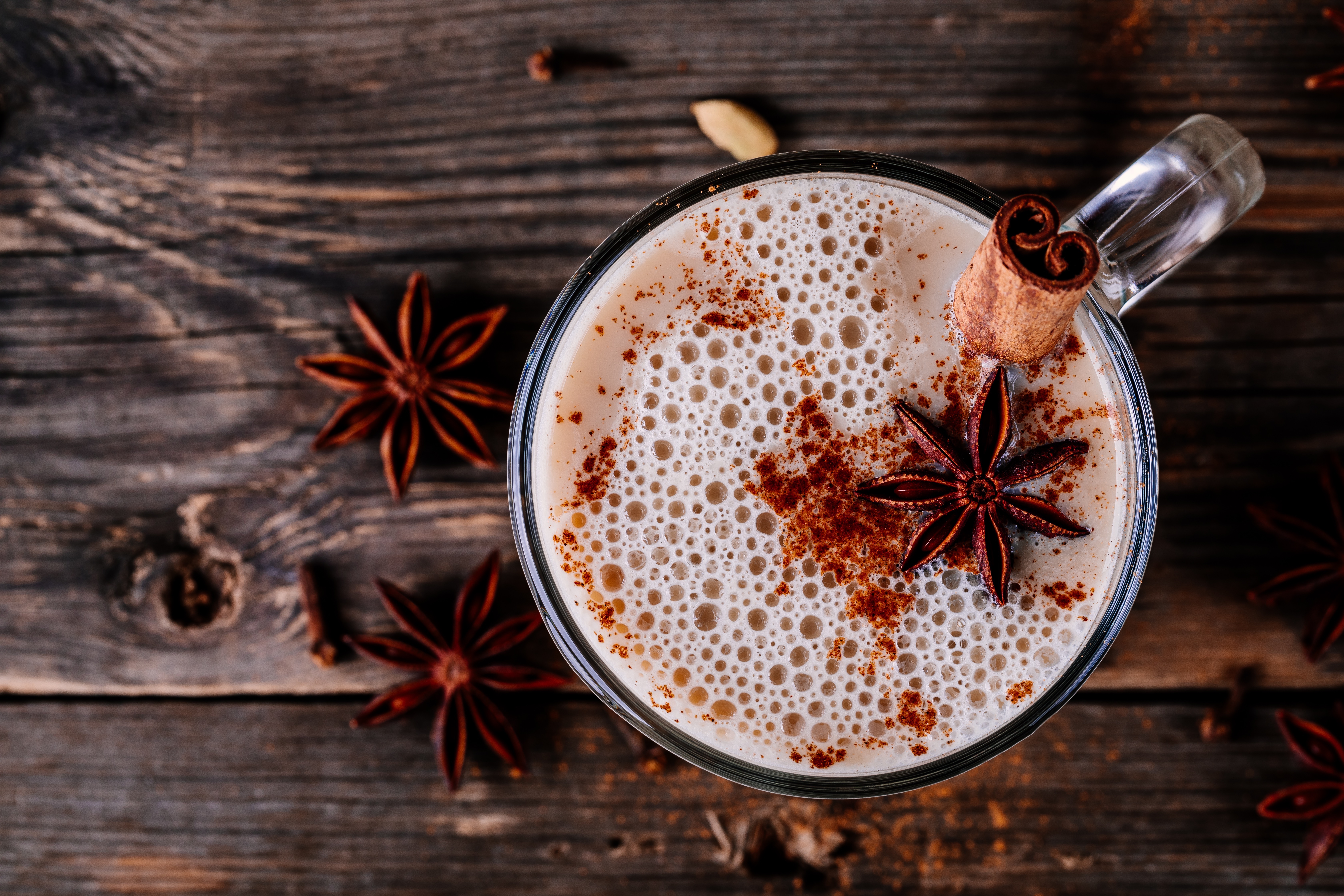
Customizing Your Caffeine Intake
Adjusting Ingredients to Reduce Caffeine
If you want to enjoy a chai tea latte but reduce the caffeine, there are easy ways to customize the recipe to fit your taste. Here are a few adjustments:
- Choose Low-Caffeine Teas: Go for lighter teas like green tea or herbal blends if you want to cut down on caffeine.
- Adjust the Tea-to-Milk Ratio: Use less tea and more milk in your latte. This not only lowers caffeine but also enhances the creamy texture.
- Shorten Steeping Time: Keep the steeping time short to extract less caffeine. A quick steep (1-2 minutes) usually brings out that delightful flavor without too much caffeine.
These simple tweaks can make your chai latte a gentler option while still hitting the spot!
Great Caffeine-Free Alternatives
If you want to skip caffeine entirely, there are plenty of delicious options to explore. Many folks are loving herbal chai blends that don’t use any black tea:
- Herbal Chai Mixes: Check out recipes with rooibos or herbal teas mixed with traditional spices for that warm flavor without the caffeine.
- Golden Milk Lattes: This smooth drink made with turmeric, milk, and spices like ginger is a fantastic caffeine-free alternative that tastes great and offers health benefits.
By experimenting with these alternatives, you can still savor those yummy chai flavors without worrying about caffeine!
Conclusion
Recap of Caffeine Variability
As we wrap up our look at chai tea lattes, a key takeaway is how caffeine content can vary. A typical 8-ounce serving of chai latte usually has between 40 to 60 milligrams of caffeine, which is milder compared to coffee that can have around 95 milligrams.
Several factors affect the caffeine levels, including:
- Type of black tea used: Some blends like Assam are known for having higher caffeine.
- Brewing methods: Longer steeping times and hotter water increase caffeine extraction.
- Other ingredients: The type of sweeteners and milk used can also influence how caffeine feels in your body.
Final Thoughts
As chai tea lattes keep gaining popularity, being aware of their caffeine content lets you enjoy this tasty drink thoughtfully. Whether you lean towards a classic chai or a spiced dirty chai latte, tracking your caffeine intake will help you personalize your experience to what you need.
Remember, balance is everything! Trying different recipes and mixing up the ingredients not only improves your chai tea latte experience but also lets you savor delicious flavors without exceeding your caffeine limits. Cheers to making smart and tasty choices with every cup!

Leave a Reply